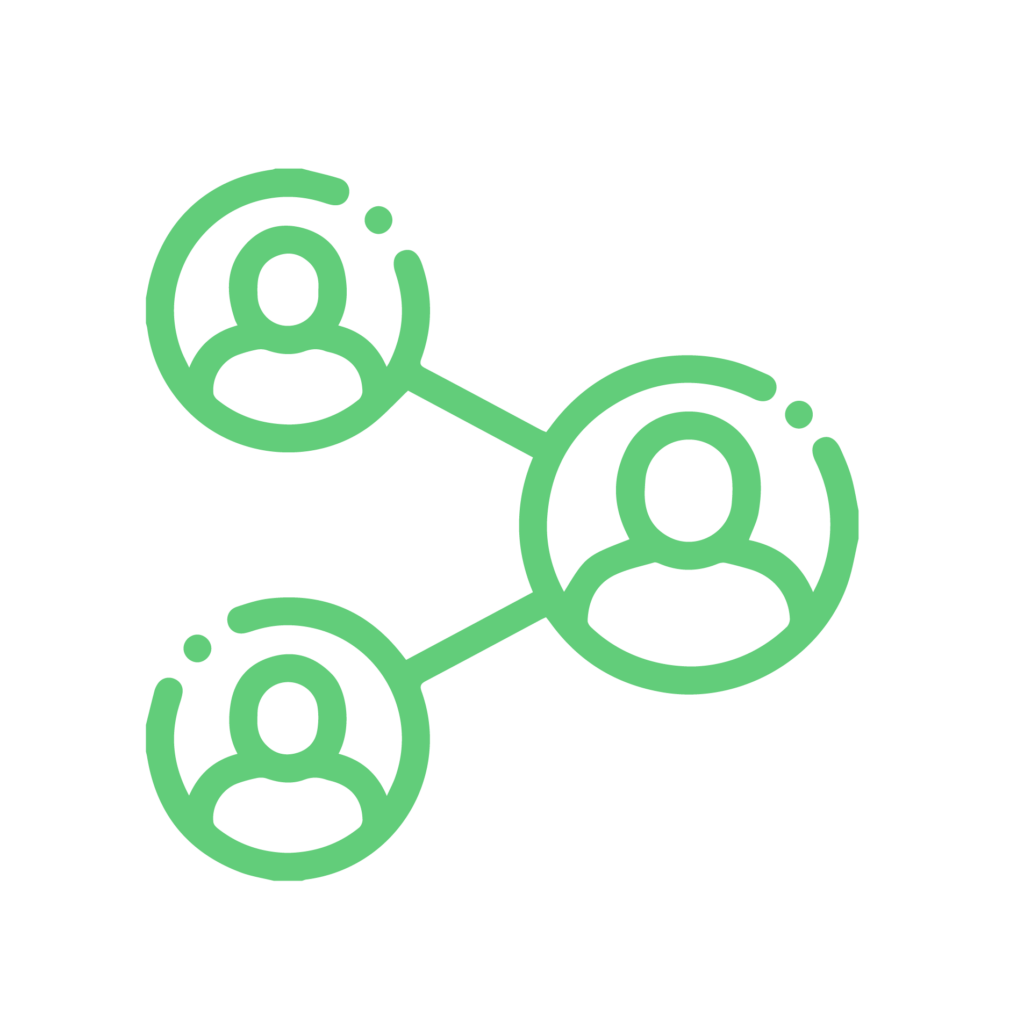
ISD's role
The Institute for Strategic Dialogue (ISD) and ISD Germany is coordinating the coalition to provide space for the participating stakeholders to exchange ideas. Additionally, the think- and do-tank contributes its innovative research on the threat landscape of online antisemitism. The aim is to create space for the coalition to discuss and develop measures to respond to current developments as they occur.
About CCOA
Antisemitism continues to threaten Jewish life, culture and safety with attacks at record high levels in many countries. Between 2002 and 2021, violent antisemitic incidents in Germany alone had more than doubled. Research suggests that this surge in offline attacks is closely linked to antisemitic narratives that proliferate online with the true scale and nature of this threat often underestimated. Commissioned by the European Commission, one ISD study found an alarming seven-fold and 13-fold increase of antisemitic content across French and German Twitter, Facebook and Telegram, respectively when comparing the first two months of 2020 and 2021. This development appears to have been caused by the Covid-19 pandemic.
Hindered by a lack of platform access, data on this issue can be fragmented and efforts to provide an assessment of the antisemitic threat landscape can be further compounded by a lack of funding in country contexts where the antisemitic threat may be more explicit.
The Coalition to Counter Online Antisemitism (CCOA) was created to get ahead of the rising tide and contribute to a consistent and strong European answer to online antisemitism. To do this, we bring together a range of curate stakeholders combating antisemitism, including CSOs, cities, businesses, practitioners and citizen initiatives, to create new partnerships to counter online antisemitism at scale, We want to amplify existing best practice and build bridges between research, educational measures and policy changes. The project focusses on ten countries: Germany, France, Italy, Poland, Sweden, Spain, Belgium, Denmark, Austria and the UK.
The CCOA is an independent pilot project, funded by Google.org through 2027.
News & Events
German Toolkit: Toolkit für Lehrkräfte – Auseinandersetzung mit Antisemitismus und antimuslimischem Rassissmus
- Published on
Based on current research findings, ISD Germany developed a German toolkit for addressing antisemitism and anti-Muslim racism in the school context: Toolkit für Lehrkräfte: Auseinandersetzung mit Antisemitismus und antimuslimischem Rassismus im schulischen Kontext – ISD-GERMANY
The toolkit offers simple but in-depth didactic approaches to promote an open and discrimination-sensitive classroom. This seeks to empowers teachers to sensitise and enable pupils to recognise discriminatory structures and actively stand up for equality and social cohesion. The guide is based on UNESCO’s Global Citizenship Education concept, which aims to empower students and citizens in a digital society to actively and responsibly participate in democratic processes. The necessary knowledge and skills are taught to counter ideologies of inequality and group-based misanthropy.
The CCOA Toolkit: Mainstreaming digital human rights in education and civic action to combat online antisemitism
- Published on
Nearly every single young European is online every day, as such the internet plays a massive role in shaping worldviews, identities, and values. This influence brings about risks—one of the more disturbing and pernicious being the growing spread of antisemitic rhetoric, conspiracy theories and online hate. This trend poses significant threats to Jewish communities globally.
To help address this rise, “The CCOA Toolkit: Mainstreaming digital human rights in education and civic action to combat online antisemitism” was developed through a three-step process by consultants in collaboration with the CCOA team and ISD. The foundation was laid through focus group discussions with teachers in Poland, which informed the initial structure and key themes. Building on this, the consultants developed the final outline and content. The third step involved an evaluation phase, which included feedback from CCOA members.
The content of this toolkit was developed by consultants Sophie Schmalenberger, Monika Hübscher, Karolina Placzynta, Anna Zielińska, and Nathalie Rücker (ISD/ CCOA). Significant contributions were also made by Sina Laubenstein, Hannah Rose, Solveig Barth, and Jacob Davey (ISD/CCOA). We would like to express our sincere thanks to Larysa Michalska and Monika Mazur-Rafał from Humanity in Action, Poland, who facilitated the focus group discussions and shared their expertise and insights from working with practitioners.
CCOA Policy Roadmap: Translated Executive Summary
- Published on
In January, the CCOA released a policy paper outlining the key challenges of online antisemitism and providing comprehensive, actionable steps for governments, tech platforms, regulators and civil society to combat online hate. Built from 42 interviews across France, Germany, Italy, Poland and Sweden, this paper presents a unified pan-European strategy to address online antisemitism and calls for stronger platform accountability, legal tools and digital rights protections. We are excited to announce the Executive Summary of this report is now available in Italian, French, Swedish, German and Polish: Mainstreaming Digital Human Rights: A pan-European Policy Roadmap to Combat Online Antisemitism – ISD
Mainstreaming Digital Human Rights: A pan-European Policy Roadmap to Combat Online Antisemitism
- Published on
Since long before the October 7 attacks, Jewish communities in Europe have experienced growing hate, harassment and hostility on social media. This policy paper articulates the key challenges of online antisemitism, and provides comprehensive and practical policy steps which governments, platforms, regulators and civil society organisations can take to address them. Built through 42 interviews with Jewish organisations and experts in antisemitism and digital policy from across CCOA’s five geographies (France, Germany, Italy, Poland and Sweden), it collates local experiences and channels them into a cohesive pan-European strategy, uniting communities and sectors in joint responses.
Read the full report here: CCOA-Mainstreaming-Digital-Human-Rights.pdf





How does CCOA work?
Antisemitism needs to be addressed through a whole-of-society approach, bringing together different experts and stakeholders from various fields and industries and across different geographies.
The exchange of best practices and ideas within the coalition is facilitated by three working groups in the areas of research, education and policy with results being shared across the coalition. Research data informs the development of educational material as well as the design of a joint policy roadmap. A final report will outline CCOA’s key findings including: research data, recommendations to policymakers and an overview of effective educational interventions.
Connecting the dots: Strengthening the understanding of the threat landscape of online antisemitism
The research working group will establish and coordinate a pipeline of advanced international analysis, allowing for comparisons between the different country contexts. Research will bridge the gap between the on- and offline threat landscape with a particular focus on how platform systems may contribute to amplifying risks in the digital antisemitism space.
A policy roadmap to counter online antisemitism across sectors
The policy working group will scope and disseminate best practice interventions and share evidence-based solutions to promote advocacy power and policy development focussing on promoting a deeper understanding of the intersectional nature of the hybridised threat landscape and online antisemitism.
Education interventions in online antisemitism
The education working group will build an international network of amplifiers to counter antisemitism by developing a training toolkit for practitioners, law enforcement, government officials and youth. Sub-grants will be given to innovative ideas that build synergies between sectors.

Interested in becoming a member of the coalition?
Tell us about your work!
How does CCOA understand antisemitism?
Nowadays, antisemitism may appear in many different shapes and sizes. It has become increasingly mainstream across all parts of society, and often polarises communities, undermines human rights and affects democratic processes.
There is no one-size-fits-all definition of antisemitism that suits every context. Several organisations use different definitions, depending on their experience and understanding of the term and the context in which it is used. It is not the role of CCOA to decide which definition is “the best” or should be used by other organisations globally. The work of the CCOA centres around the perspectives of those affected.
In accordance with ISD research, policy and intervention programs, and for the purpose of assessing different manifestations of antisemitism, the CCOA is using the non-legally binding working definition of the International Holocaust Remembrance Alliance (IHRA). The IHRA defines antisemitism as “a certain perception of Jews, which may be expressed as hatred towards Jews. Rhetorical and physical manifestations of antisemitism are directed towards Jewish or non-Jewish individuals and/or their property, towards Jewish community institutions and religious facilities.” In addition to this general definition, IHRA has provided a list of 11 non-exhaustive examples of contemporary antisemitism.
The European Commission together with the IHRA published several resources that explain how to use the IHRA definition:
- The handbook for the practical use of the IHRA working definition of antisemitism. The handbook provides an overview of good practices by international organisations, national administrations, civil society and Jewish communities from across Europe.
- The Fact Sheet on the Working Definition of Antisemitism which outlines the background of the working definition or the International Holocaust Remembrance Alliance.
FAQ
CCOA aims at a whole-of-society approach. We invite organisations working on antisemitism, journalists, lawyers, researchers, football clubs and more who may have an interest in the work of the CCOA to join us.
The CCOA provides a space for organisations and practitioners to build capacities and an intersectional understanding of online antisemitism, aiming at equipping members with the tools and knowledge needed to face an increasingly complex online threat landscape.
The working groups will come together once a month to exchange new findings in their respective fields. These meetings will take one or two hours and are not mandatory. Working outputs are continuously shared via internal channels so you can stay up to date even if your schedule does not allow you to take part in meetings.
Members will be connected to change-makers and experts across sectors on a Pan-European level. Communication through internal channels will foster the connection with experts and fellow coalition members. The coalition will benefit the exchange of knowledge, research and best practices.
ISD has long-standing dedicated digital policy expertise across online harms and the wider digital landscape, research expertise and digital analysis tools to provide unique insights on online antisemitism and the overall threat landscape. ISD also has extensive experience in developing intervention programs shaped by their evidence-based research and analysis.


